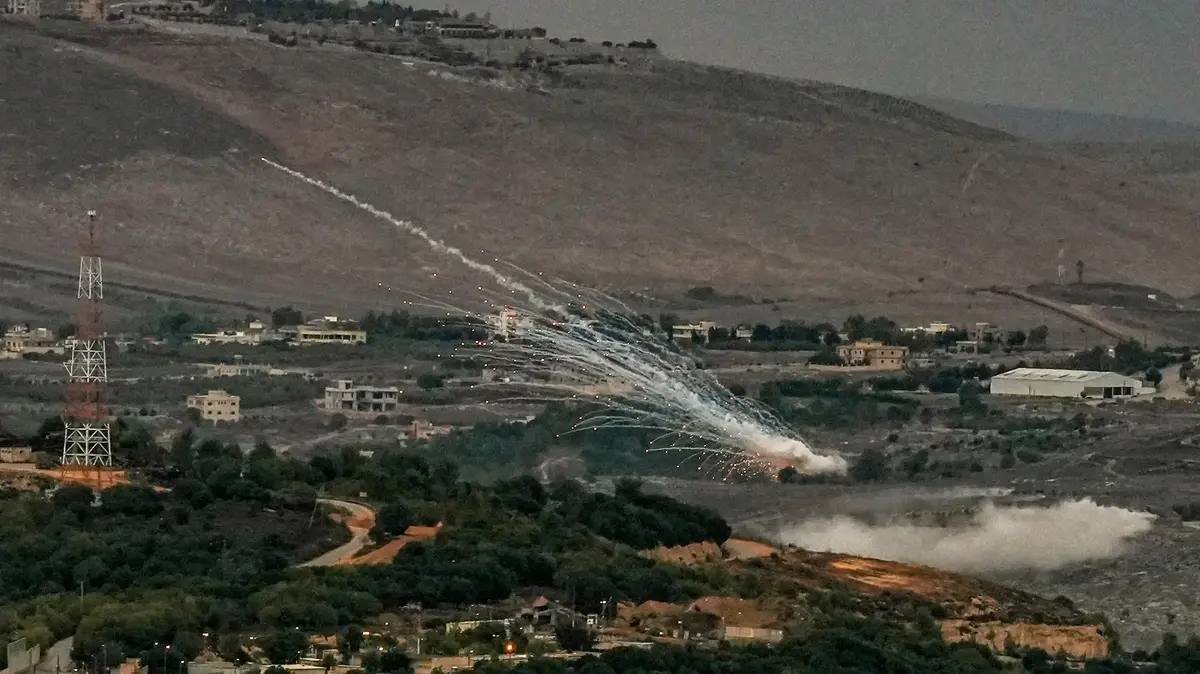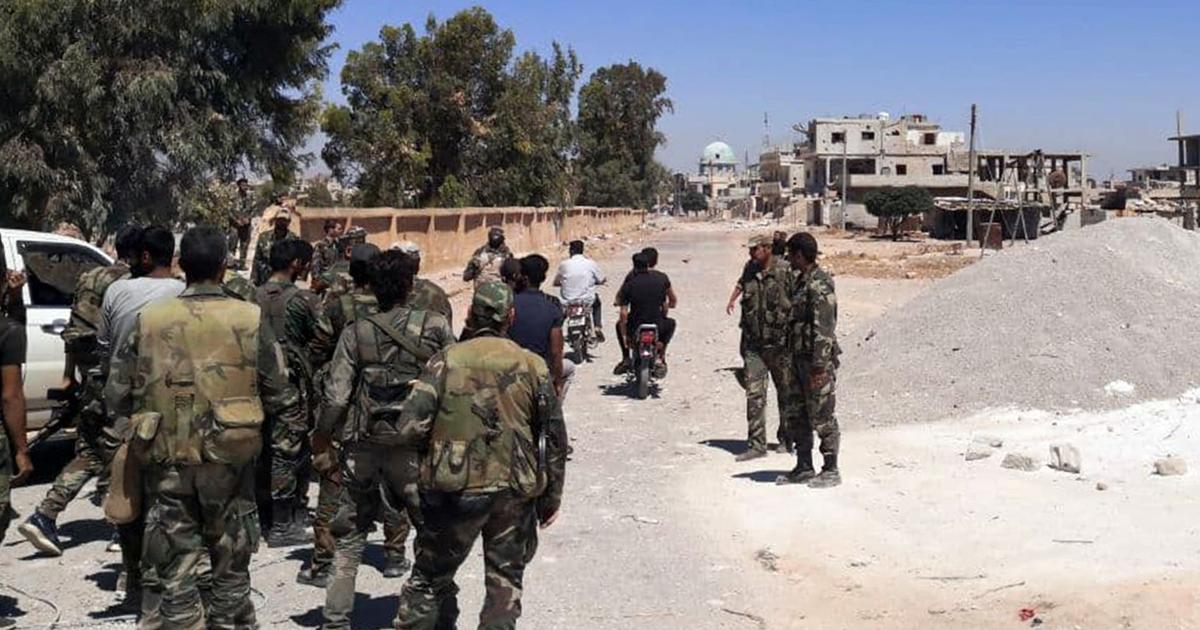Icon: enlarge
Helpers bury a corona dead in Idlib
Photo: Anas Alkharboutli / dpa
Muhammad Ezzo survived almost ten years of civil war.
The father of the family from Aleppo defied the siege by the regime of Syria's dictator Bashar al-Assad and the air strikes by Russia.
Now he died after all.
He fell victim to an invisible enemy, says his wife Mona on the phone, to the corona virus.
Mona Ezzo, 38 years old, and her three children have found shelter in the province of Idlib in a dwelling made of plastic sheeting.
Her husband initially downplayed the epidemic, says Ezzo.
Corona sufferers are stigmatized in Syria, she says.
Muhammad refused to see a doctor.
Within a few days his illness got so worse that in the end any help came too late.
The people are emaciated
Ezzo doesn't know what to do next.
She has no job.
She struggles to feed herself and the children.
"I don't know how we're going to get through the winter," she says.
Like the Ezzo, many citizens of Idlib feel the same way.
Around three million people are currently in the province in the north-west of the country.
Many of them are internally displaced people who have fled here from other parts of the country, to the last region still partially held by rebels and where there is a temporary ceasefire.
The people are emaciated from the civil war, some are impoverished, starved.
Now the corona virus is added.
It's like a war within a war.
According to official figures, around 10,000 people in Idlib are currently infected with Covid-19.
The number of unreported cases is likely to be many times higher, as there is insufficient testing in the region.
The hospitals are already completely overloaded.
"We need all the help we can get."
Salah Salah, doctor from Idlib
Salah Salah, 47 years old, works as a doctor in several clinics in Idlib.
He says he has long been unable to take in any new patients.
"We wait for a patient to die in order to reallocate a bed."
Salah and his family have fled the city of Maarat an-Numan to Idlib City.
He has worked underground in hospitals, caring for people wounded in bombing raids.
Now he mainly treats people with corona.
"The situation is dire," he says.
"We need all the help we can get."
Few have the ability to protect themselves from the virus
Very few residents in Idlib have the opportunity to even remotely protect themselves from the virus.
They don't have the money to buy masks.
It's hard to keep your distance in the overcrowded refugee camps.
Often there are not even showers or working toilets.
“We're not in Europe here.
We don't have the luxury of filling our fridge for 15 days and isolating ourselves, ”says Mahmoud Saeed, a family man from Homs.
There is also no administration to ensure that quarantine regulations are observed.
Muhammad Pasha, 49 years old, works as a paramedic for the White Helmets, a Syrian aid organization.
Week after week, he and his colleagues rescued civilians from the rubble after air strikes by Russia and the Assad regime.
When the conflicting parties agreed on a ceasefire, at least in Idlib, at the beginning of the year, Pasha hoped for a few quieter months.
Instead he is now working as a kind of undertaker.
Its job is to pick up corona deaths from hospitals and drive them to cemeteries.
He would bury five to six people every day, he says.
"For us, it's like another, unexpected war."
Icon: The mirror



/cloudfront-eu-central-1.images.arcpublishing.com/prisa/LBNNIBY325CABA2HAMMUUBWQRI.JPG)











